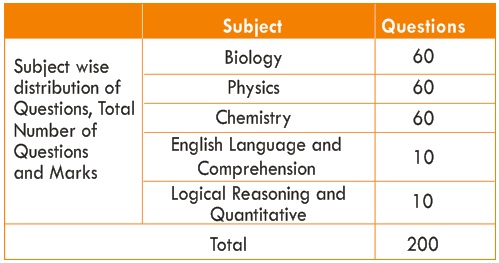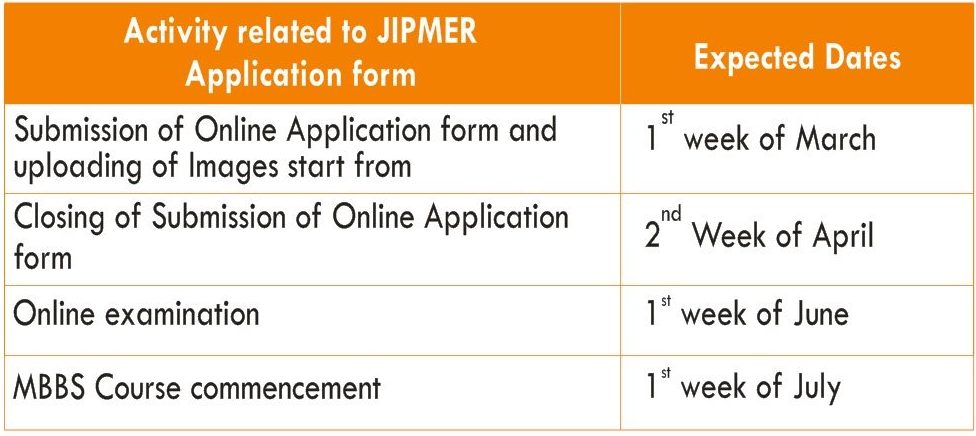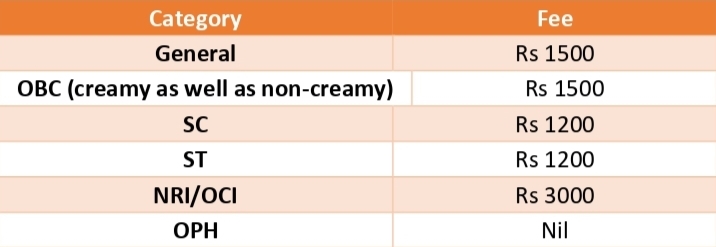What is JIPMER?
JIPMER is a national-level entrance exam to get admission in UG Medical MBBS courses. The admission will be offered by the JIPMER Karaikal and Puducherry campuses.
Eligibility
- Candidates should complete the age of 17 years at the time of admission.
- Candidates must pass individually in each subject and 50% marks taken together 40% marks/OBC/SC/ST/OPH)
- Candidates who are appearing in the qualifying exam in March/April can also apply.
Exam Pattern
- The exam will be conducted through an online (CBT) mode of 150 minutes in two shifts. There are 200 MCQs type questions asked in the exam.
- Mode of Exam: JIPMER exam will be conducted through online mode only.
- Language: The question paper will be asked in the English language.
- Type of Questions: The question paper will have multiple choice type questions.
- Marking Scheme: For every correct response, four marks will be allotted to the candidates.
- Negative Marking: One mark will be deducted for every incorrect response

Important dates
*Please keep visiting the official website of JIPMER for updated information
JIPMER Exam Application Fee
JIPMER Exam Syllabus
The JIPMER MBBS Syllabus will be comprised of Class 11th & 12th Subjects. The syllabus is prescribed by the CBSE & State Board. The questions will become from the subjects Physics, Chemistry, Biology, Logic and Quantitative Reasoning, English and Comprehension.
Biology:
Diversity of Living Organisms, Cell Structure and Function, Human Physiology, Biology, and Human Welfare, Genetics and Evolution, Plant Physiology, Ecology and Environment, Structural Organization in Animals and Plants and Biotechnology
Physics:
Electrostatics, Magnetic Effect of Current & Magnetism, Current Electricity, Electronic Devices, Optics, Electromagnetic Waves, Dual Nature of Matter, Atoms & Nuclei, Electromagnetic Induction & Alternating Current, and Communication Systems
Chemistry:
Solid State, Solutions, Electro-Chemistry, Surface Chemistry, Haloalkanes and Haloarenes, Alcohols, Phenols and Ethers, Chemical Kinetics, Coordination Compounds, Aldehyde, Ketone, and Carboxylic Acids, Isolation of Elements, Biomolecules, p-Block Elements, Polymers, d- and f-Block Elements, Organic Compounds containing Nitrogen, and Chemistry in Everyday Life
English:
- Section A: Reading Unseen Passages and Note-making
- Section B: Writing Skills
- Section C: Literature and Long Reading Text



